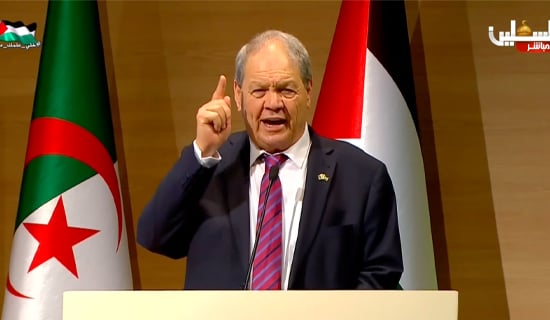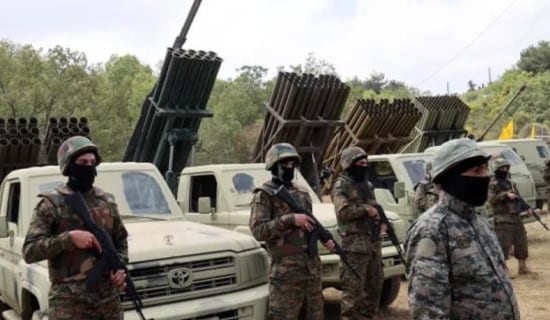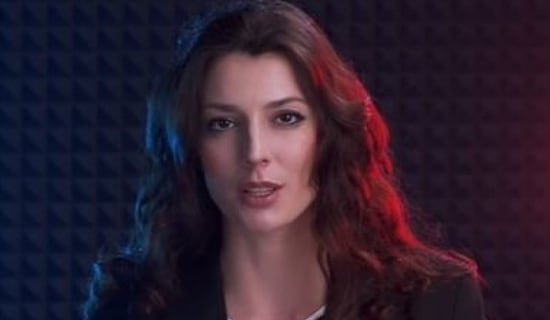On July 4, at the International Financial Congress banking forum in St. Petersburg, Russia's Central Bank head Elvira Nabiullina stated that the main constraints on Russia's economic development are domestic, putting her at odds with Russian President Vladimir Putin, who in an interview with the Italian newspaper Il Corriere Della Sera blamed international circumstances including the sanctions. Nabiullina said: "We are clearly living now in a scenario that is not all that risky. Oil prices are somewhat higher than expected; our country continues to be of interest for global capital markets. Therefore, in my opinion, the main constraints on development are domestic".
Furthermore, according to Nabiullina, national projects, regarded by Putin as an impetus to breakthrough development, do not provide a guarantee of "a proportionate multiplier effect through the expansion of private investment."
Below is an article, published in the Russian media outlet Expert.ru, commenting on Nabiullina's assessments:[1]

Elvira Nabiullina (Source: Expert.ru)
Nabiullina: National Projects Do Not Give A Guarantee Of Proportionate Multiplier Effect Through The Expansion Of Private Investment
"According to Elvira Nabiullina, who spoke on July 4 at the XXVIII International Financial Congress in St. Petersburg, the Russian economy, which in the first quarter of 2019 added only 0.5%, remained within the structural ceiling, but the change in monetary policy won't change the situation.
"'Macro-stability is not yet a growth. And the growth is now around 1.5-2%, while in the first quarter it amounted to only 0.5%. With very low unemployment. And this is the result that we will have without structural changes. Because the policy of maintaining macroeconomic stability can only stabilize the economy around its current capacity,' to cite the Chairman of the Bank of Russia's words on her website.
"'Of course, it is always tempting to blaming everything on external factors, but, in my opinion, the crux of the matter is far from them. Yes, the global economy is slowing. Trade wars and geopolitical tensions only exacerbate the situation... But on the other hand, the external environment is not so bad. We are clearly living now in a scenario that is not all that risky. Oil prices are somewhat higher than expected; our country continues to be of interest for global capital markets' said Elvira Nabiullina.
"Therefore, in my opinion, the main constraints for development are domestic,' the head of the Central Bank said, stressing that 'it is necessary to remove structural restrictions.'
"'Even if national projects are successfully implemented, for the part that concerns the government, there is no guarantee that they will create a proportionate multiplier effect through the expansion of private investment,' Elvira Nabiullina said. Manifestly hinting at one of the government's pet topics, she said: 'improving the investment climate, alas, cannot be confined purely to the reduction of the administrative barriers.'
"The head of the Central Bank considers that this climate is the main limiting factor, a situation that needs to be radically changed. How? 'We need the protection of private property, independent courts, and, in particular, a judicial settlement of corporate conflicts,' Elvira Nabiullina said. In practice, the head of the Central Bank disagreed with the president, who earlier had told Italian journalists that the economy is slowed down by external factors, and that national projects will help its development. At the same time, of course, she also protects the policy of her Bank: 'If we try to give a push to the potential growth rates with the instruments of the Central Bank, we will eventually get either inflation or bubbles in the financial markets, or, most likely, both.' - she believes, and she also noted: 'If we try to disguise structural problems by handing out cheap money, our country will waste even more time: in the first place we will lose the very hard-earned macroeconomic stability'.
"Vladimir Putin, in an interview with the Italian newspaper Corriere della Sera, published on July 3, expressed this view about the situation of Russian economy: "The problem lies... in the economic realities that Russia has to face. Namely, the [price] drop or price fluctuations on global markets for our traditional export products: oil, gas and metal. Undoubtedly, external constraints have their effect as well,” he said. Stressing the role of macroeconomic stability, the president said that 'we have managed to focus significant resources on large-scale national projects, which should enable breakthrough development in key sectors of the economy and social sphere and an improvement in peoples’ lives.' He described the problems in this way: 'As for the execution of plans, they are, indeed, not always performed as quickly as we would ideally like. Unforeseen obstacles, difficulties, [and] irregularities arise. But this problem is common to all countries. And this is understandable: too many large-scale challenges are facing all of us today, and that includes Russia.'[2]
'The Head Of The Central Bank Protects The Interests Of Her Own Department'
"The head of the Central Bank protects the interests of her own department, no matter how trite this may sound,' -believes, in turn, the CEO of Euroexpert, Ekaterina Sinogeikina. After all, according to the Ministry of Economy, the Central Bank should encourage banks to lend to the corporate sector, however growth here is possible on account of an even greater reduction in the refinancing rate, and this, from the point of view of the controller, is an unacceptable measure, since cheap money will only exacerbate the situation in the sector.
"This is why the head of the Central Bank puts up defined boundaries that she doesn't want to overstep, since it is dangerous and could result in a large-scale crisis in the industry. At the same time, banks benefit from making a profit on consumer credit and, given the strong contraction of the market of legal microfinance institutions, banks have at their disposal a very tasty morsel, so it is very likely that the sector of lending to the population will continue to grow and the controller consider that the normal development of the situation will go in this sense and that it will include a regulation of the terms for a more careful selection of potential borrowers.
"In general, Nabiullina says the right things, believes Ekaterina Shinogeikina: there is a feeling that, in the government, they are trying to shift the responsibility for the growth of the economy from one agency to the other. And Russia's economy should be boosted by adopting comprehensive measures that may include a moderate containment of the interest rate, timely implementation of national projects, support for small and medium-size enterprises and, as the head of the Central Bank correctly noted, by improving the legislation in the field of protecting private property and stiffening control over judicial practices.
"The head of the Central Bank also announced the judicial settlement of corporate conflicts. Here, the expert believes, she apparently has in mind the recent conflicts in the business field, such as the case of the Vostochny Bank and of [private equity investor] Michael Calvey,[3] which adversely affect both the banking system of the Russian Federation and the global image of Russia as a whole. In fact, this case is a good example of how a corporate conflict can develop into a problem affecting directly several related industries.
"Indeed, the words of Elvira Nabiullina and the sense of Putin's speech to the business audience in Italy can be regarded as two opposing opinions, adds Ekaterina Sinogeikina. In his speech, the head of state makes a major bet on national projects, and, at same time, explains that all of Russia's economic troubles are due to the external sanctions that prevent development and the attraction of foreign capital. In part, here there is a certain element of truth - before the sanctions, the flow of foreign investment in Russia was growing, and thereafter it begun to decline and the focus of cooperation [of foreign investors] began to shift towards other states.
"This is why high hopes are placed on national projects, which will attract huge investments on a national scale, believes Ekaterina Sinogeikina. But it will be money both from the state 'pot' and also from all the multimillionaires, who, of course, will not remain on the losing side. And the development of medium-sized enterprises in the country will remain stuck as they have been stuck so far.
"Elvira Nabiullina - says Roman Blinov, head of the Analytical Department at the International Financial Center - is absolutely right, and [on this subject] there is not even a public debate among the heads of the departments and of the governing bodies of the country. The main thing here is in the approach to the overall assessment of the future outlook and in the correct analysis of the country's entire situation. The head of the Central Bank says that one of the main challenges facing the country today lies in the safeguard of private property and in structural reforms.
"At the same time, Roman Blinov notes, the country suffers from many problems pertaining in particular to democratic institutions which should have become the basis for a healthy economy and for its growth. Not the price of oil or of the S-400, nor the presence of sanctions or their absence, but a prosperous Russian consumer and private entrepreneur or owner, armed with the institution of private property, protected by the law, [is what] Blinov believes [that it's the objective to be pursued]."
[1] Expert.ru, July 5, 2019.
[2] See Russian President Vladimir Putin's Interview with Italian newspaper Corriere della Sera.








